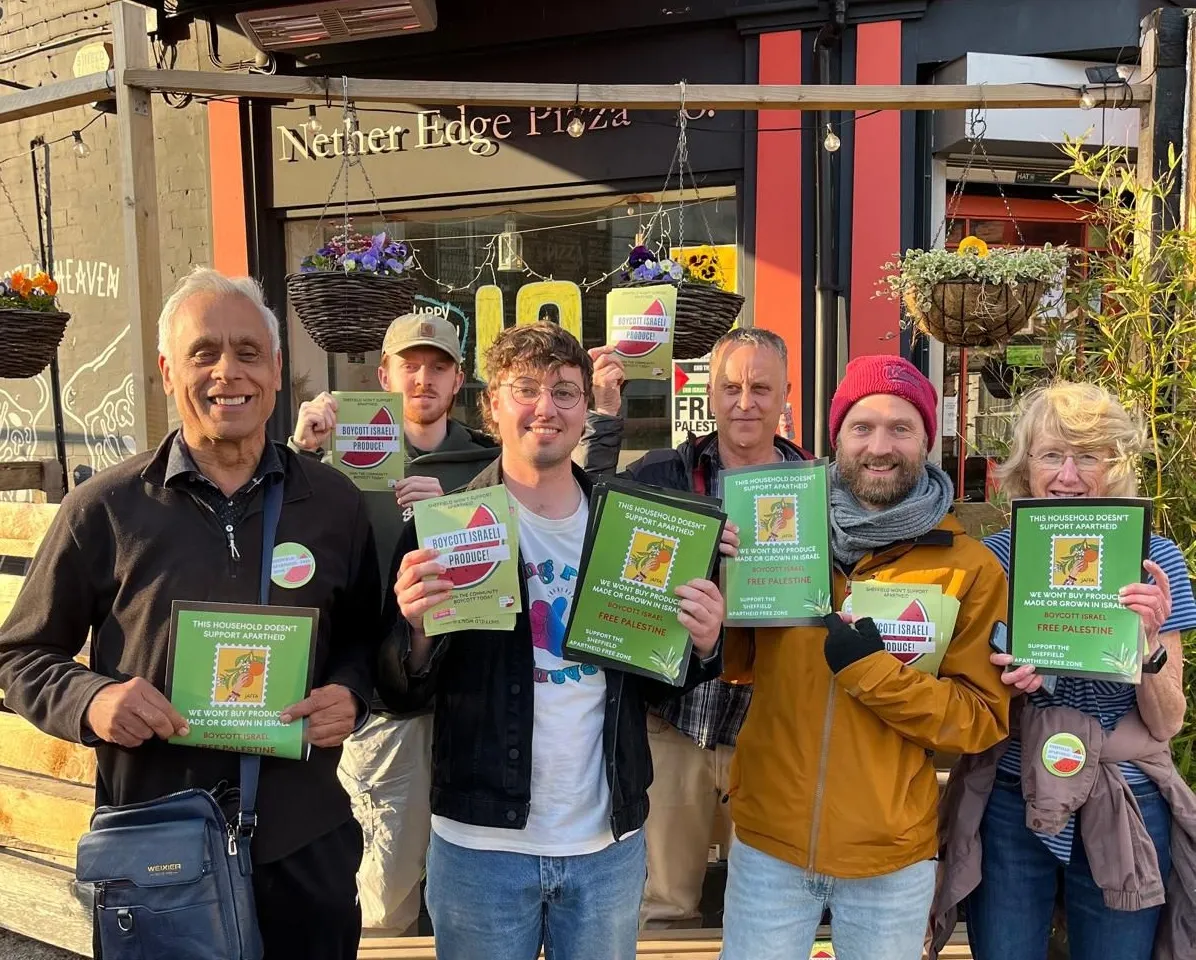Wednesday 14 June in Wath-upon-Dearne began like any other. Brews were slurped and breakfasts were bookended by the organised chaos of the school run. No coats were needed: it was going to be a hot one, with temperatures forecast to hit 26 degrees by midday. The relaxed summer term was winding down and the six-week holidays were on the horizon.
But the peace of the day wasn’t to last. Late that morning, messages began appearing on school WhatsApp groups saying one of the schools in the Wath area had been “locked down”. Schools emailed parents to say they had been alerted to “worrying threats made by a man potentially under the influence of drugs”. The man was also reported to have had a knife. Parents were asked to make sure a responsible adult collected their children, even if they usually walked home alone. Predictably, local Facebook groups went into meltdown.
At around 5.30pm that day, there were reports of a stabbing on the White Bear estate near Wath CE School on Barnsley Road. A few hours later a vigilante attack on Wath Road in nearby Brampton left a man seriously injured. Scrambling to restore calm, at around 9pm that night, Superintendent Andy Wright from South Yorkshire Police warned residents against “speculation and taking matters in to their own hands”.
More than a week later, there is still no clarity over what happened. South Yorkshire Police say last Tuesday evening they received three reports of an altercation on Wath Road during which a man was seen with a knife. Further reports of a man with a knife in the area were received on Wednesday. Later that day, police were told a woman had been stabbed. However, after speaking to the complainant and following a number of enquiries, they concluded that no such incident occurred.
Then, sometime around 7.30pm on Wednesday evening, police say “significant disorder” broke out at an address on Wath Road. As a result, one man was taken to hospital with multiple fractures to one leg and a 41-year-old man from Rotherham was arrested on suspicion of violent disorder and assault. The day after, a 33-year-old man was arrested in connection to Tuesday’s incident on Wath Road.
The alternative version or versions of what took place has been somewhat more difficult to piece together. The latest police statement is clearly an attempt to draw a line under the situation. But judging by my conversations in the area this week, it hasn’t succeeded. Yes — this is a story about an alleged stabbing. But it’s just as much a story about Facebook, and how posts published virtually can have disturbing real-life consequences in local communities.
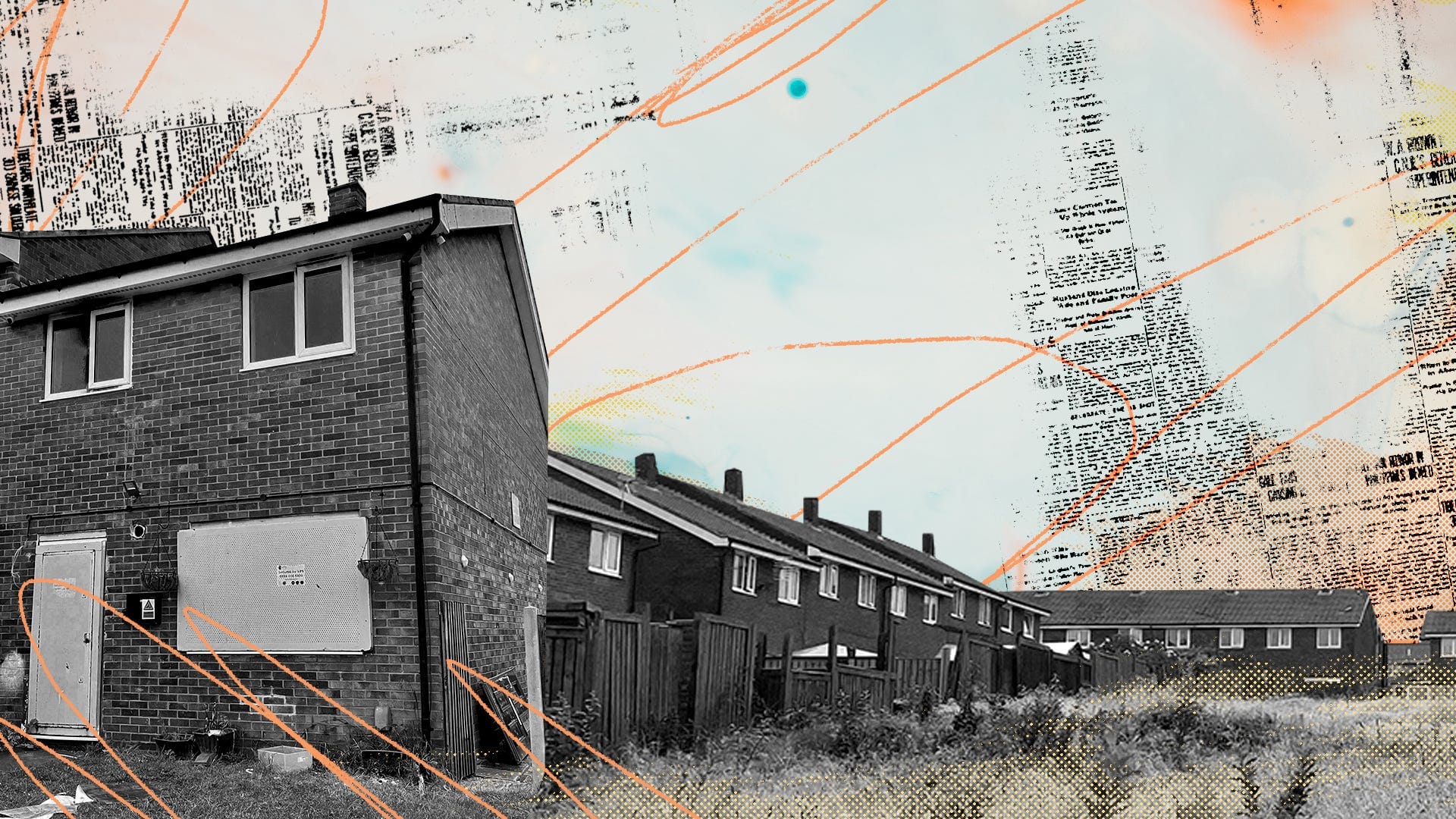
As I arrive and get out of my car, the heatwave seems to have come to an abrupt close and been swapped out for fine, steady rain. Possibly mizzle. Trying to get my bearings, some helpful council bin men in a local park tell me where the White Bear estate is. Pointing up the hill, they both seem surprised that’s where I want to go.
The estate itself is a rabbit warren of cul de sacs and gennels. But a quick walk around the area is all it takes to realise I’m not exactly in the Garden of Eden. While there are some well-maintained properties on the estate, these are interspersed with tumble-down houses and unkempt gardens. The communal areas of the estate are overgrown while a half-destroyed hot tub perches incongruously on wasteland at the end of one street. Keble Martin Green is the neighbourhood’s main green space, but recently planted trees lie snapped in two and a makeshift swing is all the children have to play on.
Walking around I quickly arouse the attention of some of the locals. “No one’ll speak to you,” one woman shouts towards me as she walks back from the shop clutching four bottles of pop, three small and one large. “It’s all over Facebook anyway,” she continues. Sensing she might say more, I run over and get my phone out. She’s wary of being recorded and certainly doesn’t want to be named, but is willing to speak to me — for a few minutes at least.
“If you’re going to put somebody like that into an area like this, expect him to get some severe damage,” she tells me. “Because these won’t stand for it round here.”
Already lost, I request that we go back to the beginning. She tells me that concerns in the area first began to grow two weeks ago. On the Friday before the events of last week, a man was reportedly harassing women in some of the local pubs. The woman tells me this was reported but the police never questioned witnesses.
After this the local Facebook groups began to go into overdrive. Apparently the man had chased some girls from the local secondary schools as well. Apparently he’d been done before for manslaughter of a minor. The woman tells me she learned all this from Facebook, where ever-more intense commentary about the incidents was taking place throughout last week.
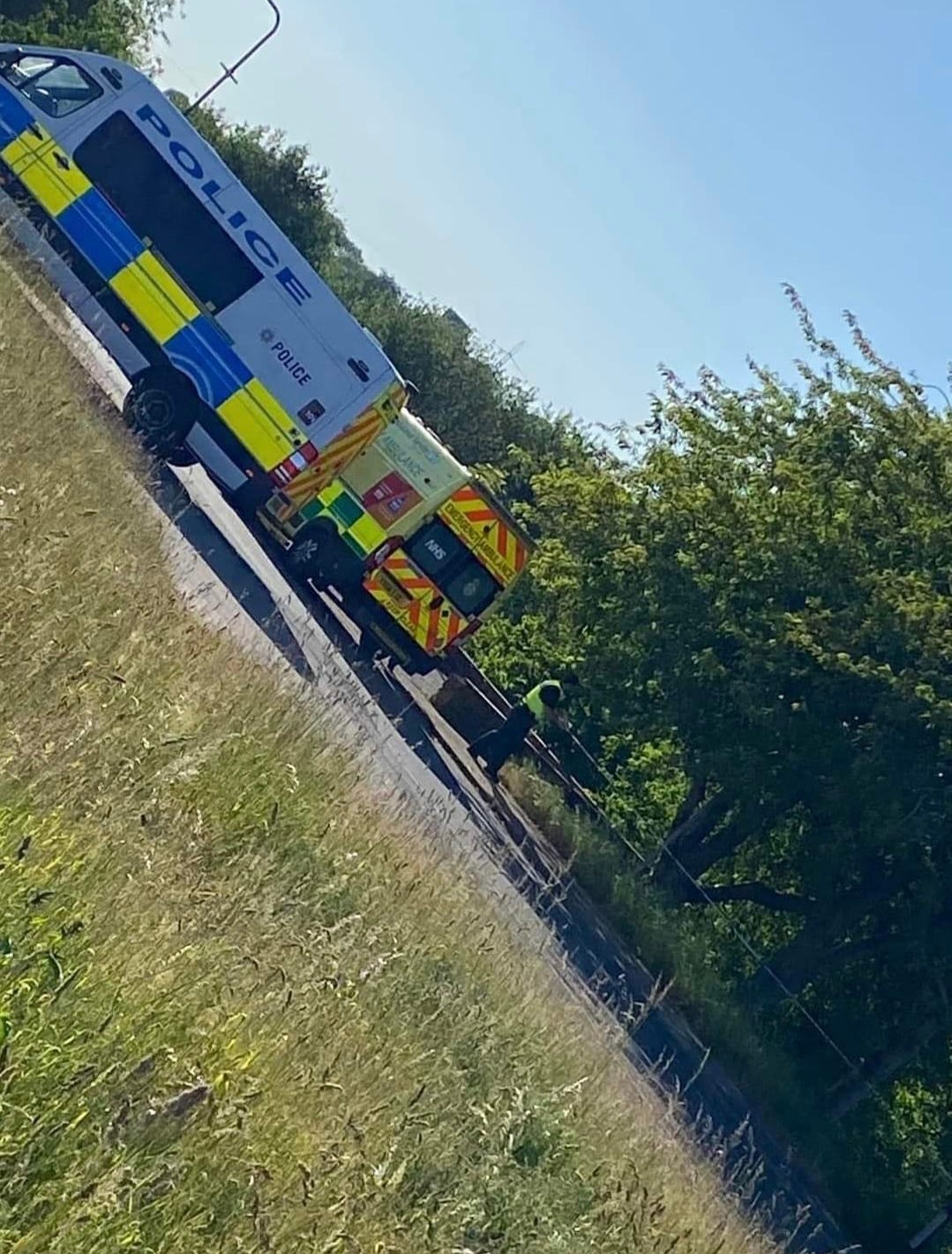
After the altercation on Wath Road on Tuesday evening, the situation escalated when the message about local schools being “locked down” began to circulate on Facebook on Wednesday. Later that day, when a woman claimed to have been stabbed on Denman Road, it appears to have been the straw that broke the camel’s back. Later that evening, a group of vigilantes went to a house on Wath Road and attacked a man, breaking his legs, she claims. Whether this was the person they wanted to attack or someone else, no one seems to know.
There are hundreds, possibly thousands of posts on Facebook which reference the incidents of last week. On one, a photo of several police vans on Denman Road is accompanied by the text: “Watch art people some lass just been stabbed on estate! Who Evers done it’s done one 😡.” On another, on the group Brampton Wise, one commenter writes: “He’s just been on cardboard hill and done another stabbing, chased my friends sisters mate and her mums took a stabbing for her. It’s awful what’s happening!”
Some commenters do urge caution, but more temperate language is quickly drowned out by the crowd. In response to another post saying a “young lass had been stabbed by the man threatening kids”, one of the WATH RANT PAGE’s 12,000 members posts two pictures of the man they believe is responsible. “Apparently this guy but don’t know,” the comment says.
It’s tempting to leap to judgement: the people who are posting these comments are flawed, somehow, or irresponsible. But that would be unfair. These posts feel as much about the structure of social media as they do about individual personalities. This year, the University of South California released a study where they surveyed more than 2,400 Facebook users, looking to discover what motivates people to spread “fake news”. The study pinpointed Facebook’s in-built rewards system, which teaches its users that those who share “sensational, eyecatching information” are particularly well-rewarded for their efforts. They concluded that users “form habits of sharing information that gets recognition from others”, and once that habit had formed, the cues from the platform to share were enough to make writing such posts automatic, with users not stopping to think about spreading misinformation.
When we asked to speak to someone from South Yorkshire Police about the incidents, the force said no one was available. However, a spokesperson told The Tribune that the two men who were arrested last Thursday had been bailed pending further enquiries. They added the injured man remained in hospital in a serious but stable condition. On Thursday last week, an enhanced police presence was in evidence in the area. It has now been withdrawn.
As we’re talking about the events, I feel like I need to push back. If this kind of thing happened near where I live I’d just call the police, I say. “There’s no point in ringing police, they don’t come up, they don't do anything,” she tells me. “They say we’ll come out and take a statement. Now you’re a week too late and someone has been seriously hurt.”
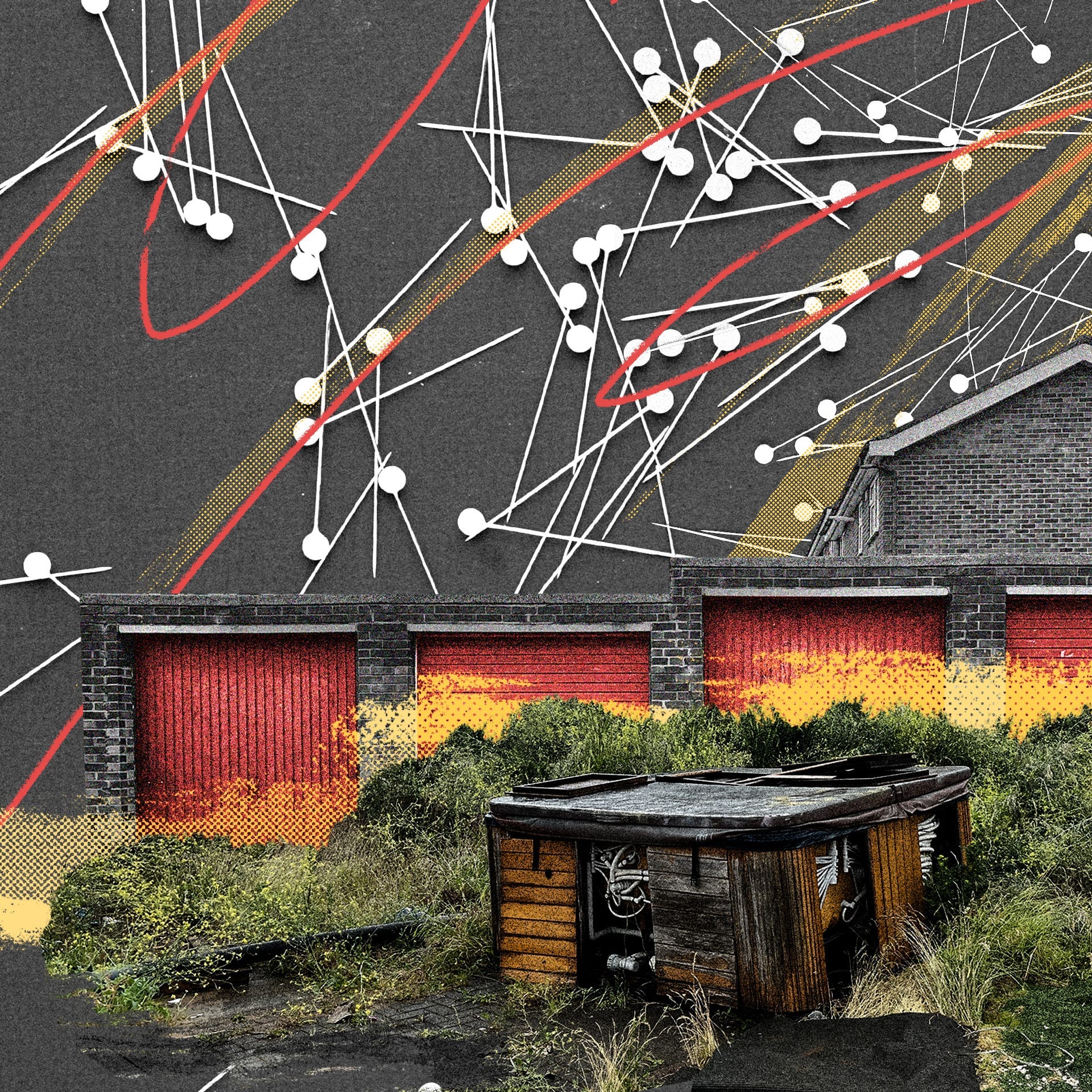
But what about the stabbing, I say. Police say it never happened. Are they making that up too? “Her sister [The woman who claimed to have been stabbed’s sister] has spoken to a few people, she’s had 25 stitches,” the woman says. So you still think she was stabbed? “Yeah, I do,” she says. “And she miscarried in the process. I think South Yorkshire Police are covering up a lot of shit.”
The police statement says the woman’s injuries, while real, were down to a pre-existing medical condition. But this doesn't appease the Facebook mob. On one thread on the SYP Facebook page, one commenter claims they’ve spoken to the woman who has been stabbed in hospital. She says the stabbing is “one hundred percent” true but police have forbidden her from talking about it.
Why would the police lie about something so clear cut, I ask. “Because they are liars,” the woman tells me. “I’ve got a backstory with South Yorkshire Police.”
Five miles north of Rotherham, Wath-upon-Dearne was once a bustling mining town. High quality bituminous coal, prized for its use in heating and power generation, was dug out of the ground here for centuries. In the twentieth century, production was centred around two main local collieries: Wath Main and Manvers Main. Cortonwood colliery, the proposed closure of which precipitated the 1984-5 miners’ strike, was just a few miles away.
The town itself is larger than I expected, with varied estates scattered around a couple of main roads. The area of Newhill up Cemetery Road is made up of attractive semi-detached houses with manicured gardens and hanging baskets in full bloom. Down the hill on the White Bear estate is a different story, however. The estate feels reminiscent of some I’ve been to in Sheffield, like the Gleadless Valley. But perhaps its remote geography makes it even easier to forget than big city estates. Out of sight, out of mind. When I ask people there what it’s like to live on the estate, the reaction is unanimous: “Not great,” they say.
“We’re a dead end housing estate where council place you cos they dont give a shit,” the woman tells me. “If you look around this estate it’s scruffy as fuck.” She’s not wrong. She tells me next door but one to her is a well-known drug den, and claims that prostitution is also rife in the area. “I tell people not to even accept a property around here because once you're in, Rotherham council don’t care.”

Prodding further into her personal story, I ask about her history with South Yorkshire Police. “I was one of the girls from Operation Stovewood,” she says. “I’ve got a lot of hatred towards SYP and RMBC [Rotherham Metropolitan Borough Council], because they did nothing.”
Operation Stovewood, the National Crime Agency’s investigation into historic child sex abuse in and around Rotherham between 1997 and 2013, is the single largest law enforcement investigation into non-familial child sexual exploitation and abuse the UK has ever seen. A report written by Professor Alexis Jay in 2014 found that 1,400 children were sexually exploited in Rotherham during a 16-year period. It found that the abuse was underplayed by senior managers at the council and was not seen as a priority by South Yorkshire Police, adding many officers “regarded many child victims with contempt”.
Many of the girls who were victims of CSE were dispersed around Rotherham, and even further afield, she tells me. “They say we’ll pay for it, we’ll give you money,” she says, “But money doesn't make it any better.”
As well as the CSE scandal, also remembered in the area are the Arkwright murders. Anthony Arkwright was just 21 years old when he killed three, possibly four, people in a notorious “spree killing” in 1988. One of five children who were all abandoned by their mother when they were very young, he spent much of his early life in care and drifted into a life of crime. When he was sacked from his job at a Mexborough scrap metal merchants due to poor attendance, he walked back to Wath and began his killing spree.
Arkwright first killed his grandfather, Stanislav Pudoikas, who in fact was suspected of being his real father, at the 68-year-old man’s allotment. He is then believed to have killed his grandfather’s housekeeper, 73-year-old Elsa Kronadaite, but the charge was never proven in court. He then killed his two next door neighbours, Raymond Ford and Marcus Law, stabbing them hundreds of times before mutilating their bodies. He is currently serving a full-life term.
Arkwright’s crimes took place just a few months after the area’s three local pits closed down. Since then, the area has struggled economically, with the jobs for life that came with the mining industry replaced with less secure employment. After the entire Dearne Valley was identified as an impoverished area in the 1990s, public money including European funds were pumped into the area. But while the money did bring about a degree of economic revival, the last 13 years of austerity has stalled that progress. The area now epitomises the kind of left behind places that voted heavily for Brexit in the 2016 referendum. A Guardian piece from 2019 reported that in the nearby village of Denaby Main, 80% of people voted to leave the European Union.

Added into this toxic mix of mistrust and misinformation is the refugee hotel down the road. 130 asylum seekers have been placed in the Holiday Inn in nearby Manvers since last year. A protest organised by far right activists took place outside the hotel in February. The woman tells me some of the men housed there have allegedly made comments to women and children in the area. Some people commenting on the Wath incident on local Facebook groups last week compared it with events in Nottingham the day previously, when Valdo Calocane, 31, a dual Guinea-Bissau/Portuguese national is alleged to have killed three people. Many of the Facebook comments about the Wath incident falsely assumed that the man they were looking for was a resident at the Holiday Inn.
Two days later I travel back to Wath, this time to the area near where the man was attacked. Tracking down his house, I approach the front door to find a metal plate fixed into the letter box, presumably by the police. There’s no one in so I knock on the next door neighbour's door. The man doesn’t want to be named but is happy to tell me what he knows. He was out at work when it happened, and came back at about 9pm when only a handful of police officers were left. “On Facebook it said he lives across from the shop and has a dog,” he tells me. “I live across from the shop and I’ve got a dog too.” It was lucky you weren’t in, I say. “It could have been me,” he agrees.
Of the man who was attacked he tells me he hasn’t lived in the area long and moved to Brampton from Sheffield. He lives alone and is an ex-soldier who suffers from PTSD. Did he ever have a knife, I ask? “I never saw him with one,” he tells me. “It’s all just Facebook rumours. All that day when people were saying they’d seen him, he were here. Whatever happened, it’s just wrong.”
Back on Wath Road, I bump into local man Stefano, who tells me it “all kicked off” at about 6pm last Wednesday. He remembers the entire road being cordoned off and loads of police cars and officers descending on the area. All the neighbours were out of their houses crowding round the man’s property, he adds.
Stefano says he was aware of rumours about a man carrying a knife the day before the attack. And there were also suggestions he had “tried it on” with a 15-year-old girl in the area. But he’s also wary of believing everything he reads on Facebook groups like the Wath Rant Page. “As soon as one person writes something and one person reads it, it becomes the gospel truth,” he says.
Of the man who was attacked, he tells me he had bumped into him before and was struck by his unusual behaviour, believing him to be “either weird or on something”. But to jump from that to vigilantism strikes him as an overreaction, he says. “There’s definitely something wrong with him and if that’s the case then he shouldn't have been beat up he should have been assessed,” he tells me. “However, when there were reports of someone walking around with a knife that day, I didn't see a single police officer until he was getting beat up.”
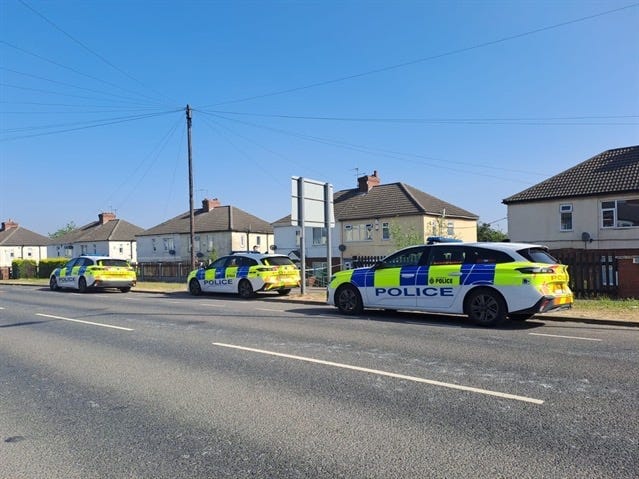
To describe places as forgotten is a common journalistic cliche: a phrase we take down from the shelf when we’re looking for a sensationalist headline. But of all the places I’ve been in South Yorkshire, the area that fits that bill best is the White Bear estate in Wath. Before a full police investigation and court case, it’s almost impossible to know exactly what went on in the area last week. If it were me, I’d instinctively trust the police's account. But that’s easy enough to say when I don’t live there, in a place whose history might convince you to nurse one key belief, hold it close for warmth: the police aren’t enough. There’s no one to look after you but you.
It feels like a kind of perverse bastardisation of the boy who cried wolf. In the fairy tale, the boy claims to have seen a wolf when no wolf is there. The first few times villagers believe him until they grow tired of his lies. Then, when the wolf is actually there, their patience has run out and disaster strikes. People on Wath’s White Bear estate have been talking about the problems of the area for years but haven’t been believed. From speaking to the people of this one estate, it feels like some have given up on getting any help and decided to take matters into their own hands. Of course it’s wrong but I can kind of see the logic.
Ultimately, I don’t know what happened. That’s important to emphasise in a story that’s as much about misinformation as it is an alleged stabbing: in the end, I don’t know whether anything the people of Wath told me is any truer than the rumours going round on Facebook. I tried to reach out to the authorities to fact-check some of this, but South Yorkshire Police turned down an interview request and Rotherham Council say they “don't think it’s appropriate to comment while there is a live investigation ongoing”. However, after spending some time in Wath and Brampton speaking to people, I feel like I understand a bit about the issues affecting the area. It seems likely to me that a troubled man was placed in an area and left with very little by way of support and expected to sink or swim. Predictably, he sank.
South Yorkshire Police will say they don’t have unlimited resources, and shouldn’t be left in a position where they are providing mental health care, with some justification. Rotherham Council would presumably argue the same. But for the people of Wath and the Dearne Valley, who have long memories of the way their communities have suffered over the last four decades, it’s understandable that those words fall on deaf ears.





